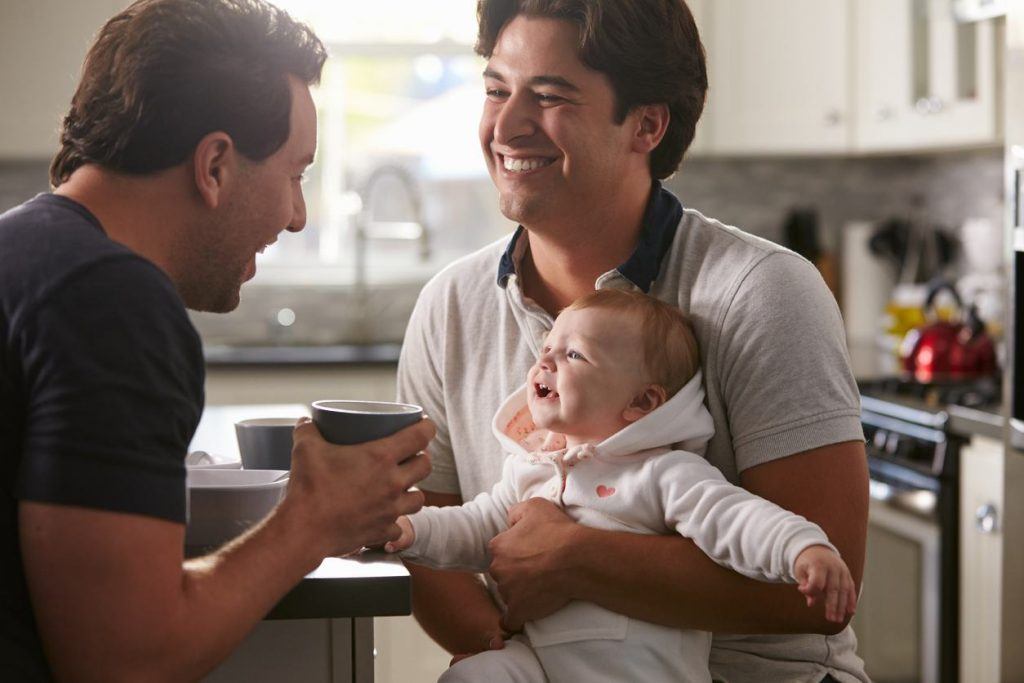
The Rights of Same-Sex Couples: Adoption
Joshua Chilton, Legal AssistantThe United States, as a whole, has only allowed same-sex marriage for just over two and a half years. It is law that same-sex couples have the right to marry in the United States of America, but there are some who still struggle with the question of what exactly that entails. Certainly, same-sex couples can be married now, but are they afforded the same rights as heteronormative marriages? My answer is yes; if same-sex couples can legally marry, they should not have some cheap imitation of it. The law should give them the equal rights to their heteronormative counterparts, including hospital visitation, joint taxes, inheritance, and all other areas of the law. However, there are those who see same-sex marriages as inherently different from heteronormative marriages, and as such, believe they should not be treated the same or offered the same services. One such service, which is still heavily fought over, is the adoption of children.
Our neighboring state, Georgia, has recently had this argument enflamed in the form of Senate Bill 130. The bill would have been a major update to the state’s adoption laws, of which had not been updated in such a manner in 27 years. The bill stalled, neither passing or failing, at the end of last year after a provision was added by their state Senate Judiciary Committee which would allow private adoption agencies, including those that receive public funds, to refuse to place children in homes based on familial, cultural, or religious reasons.
Champions of LGBT+ advocacy argue the provision would allow the private agencies to discriminate against LGBT+ homes and cite any number differences between the children and the potential families. Sponsors of the amendment adversely claim that the added language in the bill would give agencies the power to find what they deem to homes more aligned in the interests of the children. It’s not hard to see both sides of this argument, as there is some truth to both sides. Certainly, agencies should consider the best interests of children, but it is also possible that such a provision could allow agencies to push their private agendas of what they believe families should be like, discriminating against not just LGBT+ families, but any family they do not want to place children with for any familial, cultural, or religious reason, rather than seeking out fit homes for children. A private agency could refuse to place a child in the home of divorcees, single parents, families of different ethnicities than a child, and families of different religions than a child even if the prospective families have the means and desire to care for a child.
If a family has the means and the desire, and is not a danger to a child, they should be given a chance to raise a child, regardless if they are a single parent, from a different culture, hold a different creed, or are a little queer. Georgia has over 13,000 children in foster care, all of which may be in the system for well over a year before they ever find a permanent home. Georgia has seen an increase in the number of children in foster care in recent years, which is why this bill was on the fast track to becoming state law, seeing bipartisan support until the controversial provision was added. It is disappointing to see such a popular, and needed, bill, which seemed poised to pass without contest, derailed in such a way.
Speaking as someone of the LGBT+ community, for many same-sex couples, our avenues for having children are not always as cut and dry as a heteronormative couple. Some may prefer biological children, and that can mean either artificial insemination or surrogacy, but there are many LGBT+ families who do not feel their children need to share their blood; they just want to have a happy family. When there are so many children, not just in Georgia but across the nation, that do not already have homes, I know what I would want to do; I’d want to adopt.
However, with a provision such as the one in Georgia’s adoption bill, I could be denied that chance, and a child could be left in foster care, even if I had a stable, loving home to offer, whether I am in a same-sex marriage or a single parent at the time. It breaks my heart to think some would let children be without permanent families simply because some see the differences between us as divides rather than what makes this a nation for all.
by Joshua Chilton, Legal Assistant
 North Carolina Divorce Lawyers Blog
North Carolina Divorce Lawyers Blog

